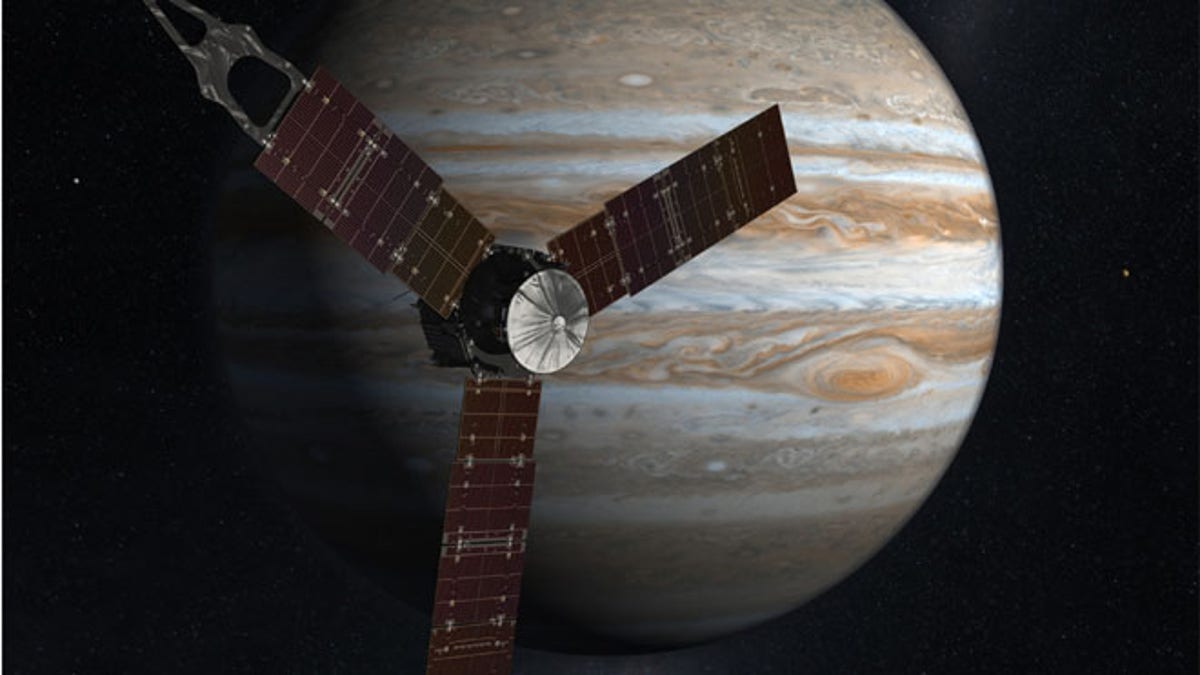
This undated image released by NASA shows an artist rendering of the Juno spacecraft circling Jupiter. (AP/NASA)
PASADENA, Calif. – A Jupiter-bound spacecraft successfully fired its engine Thursday in the first of two crucial maneuvers intended to bring it toward Earth for a momentum-gathering fly-by.
NASA officials said the Juno spacecraft, which is about 300 million miles from earth, fired its main engine for just short of 30 minutes.
Along with another engine firing set for next week, the maneuver is intended to direct Juno toward Earth's orbit for a 2013 fly-by, where it will use the planet's gravity to accelerate toward the outer solar system.
Launched last year, Juno is zooming toward an encounter with the giant gas planet in 2016.
More than half a dozen spacecraft have visited the solar system's largest planet since the 1970s, but Juno promises to venture closer for a deeper study into Jupiter's evolution.
By peering through Jupiter's dense clouds and mapping its magnetic and gravity fields, scientists hope to better understand how the solar system formed.
The $1.1 billion mission is managed by NASA's Jet Propulsion Laboratory.
Soon after launch, it glanced back and snapped a rare picture of Earth and the moon.
Since the rocket that carried Juno was not powerful enough to boost it directly to its destination, it has to cruise out to space and swing back next year to use the Earth as a slingshot to push it toward Jupiter.
The back-to-back burns were needed to put Juno on course to fly by Earth at an altitude of some 300 miles.
To prepare for Thursday's engine burn, the spacecraft's fuel tanks were pressurized and its batteries were fully charged.
Once in orbit around Jupiter, Juno will circle the poles 33 times and use instruments to track the abundance of water and oxygen in the atmosphere, and determine whether the planet's core is solid or gaseous.
Juno is the first solar-powered spacecraft to venture so far from the sun. It is equipped with three solar panels, each the size of a tractor-trailer.
Juno is designed to study Jupiter for a year and then deliberately crash into the planet so that it won't pose any threat of biological contamination to moons such as Europa, which scientists believe may have a liquid ocean beneath its surface.








































